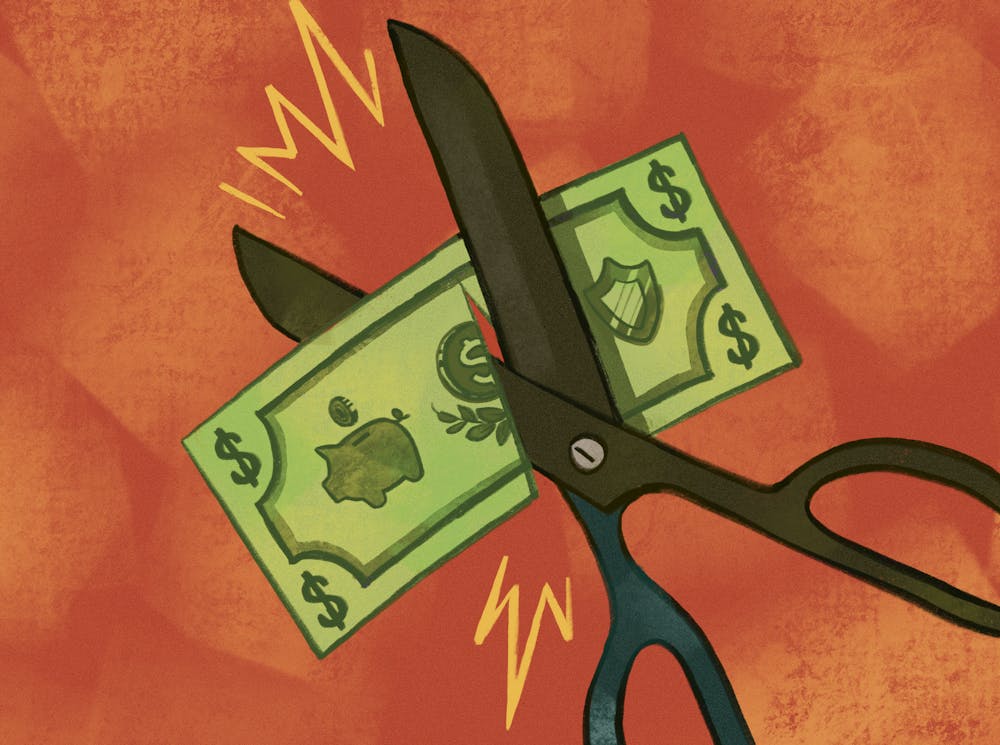Since President Trump’s implementation of sweeping international tariffs, the value of the Rhode Island state pension fund has dropped by approximately $500 million.
This represents about a 4.5% decline in the fund’s value, according to a statement shared by Robert Craven Jr., the director of policy and intergovernmental affairs at the office of R.I. General Treasurer James Diossa. As of April 7, assets had declined from approximately $11.5 billion to $11 billion.
Retirement allowances are provided statewide by the Employees’ Retirement System of Rhode Island, which was established in 1936. ERSRI provides “retirement, disability and survivor benefits” to state employees, public school teachers, state judges, state police and municipal employees from participating municipalities, according to the ERSRI website.
In total, the benefits go to a total of about 60,000 people throughout Rhode Island.
The statement shared by Craven notes that “Trump’s decision to implement sweeping tariffs and provoke a trade war” has had an “overwhelmingly negative” impact on Rhode Island’s market and finances.
Since taking office, Trump has placed a flurry of tariffs on goods such as steel, aluminum and cars. These taxes have targeted countries like Mexico, Canada and China. While the tariffs on nearly all countries were reduced to a blanket 10% tariff on April 9, China continues to see tariffs of up to 245%.
“Major declines in the equity markets or in the private bond markets will have an adverse impact on retirees’ income security,” wrote Vincent Mor, professor of health services, policy and practice at the School of Public Health, in an email to The Herald.
The White House did not respond to a request for comment.
According to the Providence Journal, the retirees most likely to be impacted by the recent drop in pensions are those whose benefits were reduced by a controversial pension reform bill passed by the R.I. General Assembly in 2011.
The “ruthless” cuts instituted by the 2011 bill were “in violation of the Constitution of the state of RI,” wrote Sandra Paquette, a retired Cranston special education teacher and founder of a nonprofit pushing to restore some of these benefits, in an email to The Herald. “Thousands remain at incomes close to, or at, poverty levels for the State of Rhode Island.”
Some of these benefits have already been partially restored, but Trump’s trade policies and the recent hit to the pension fund have “not helped the retirees’ case,” the Providence Journal reported.
“Treasurer Diossa expects market volatility to continue if the President continues his tariff policies,” the statement reads. But “the Treasurer remains confident in the state’s current asset allocation,” which has been designed with a “diversification of assets” in order to protect against potential volatility.
In order to ensure that all retirees receive their due payments, “the Treasurer and State Investment Commission will continue to monitor the economic impact of President Trump’s tariff policy and assess the fund’s asset allocation,” the statement reads.
“The state of Rhode Island owes a duty to current and future retirees,” according to the statement.





